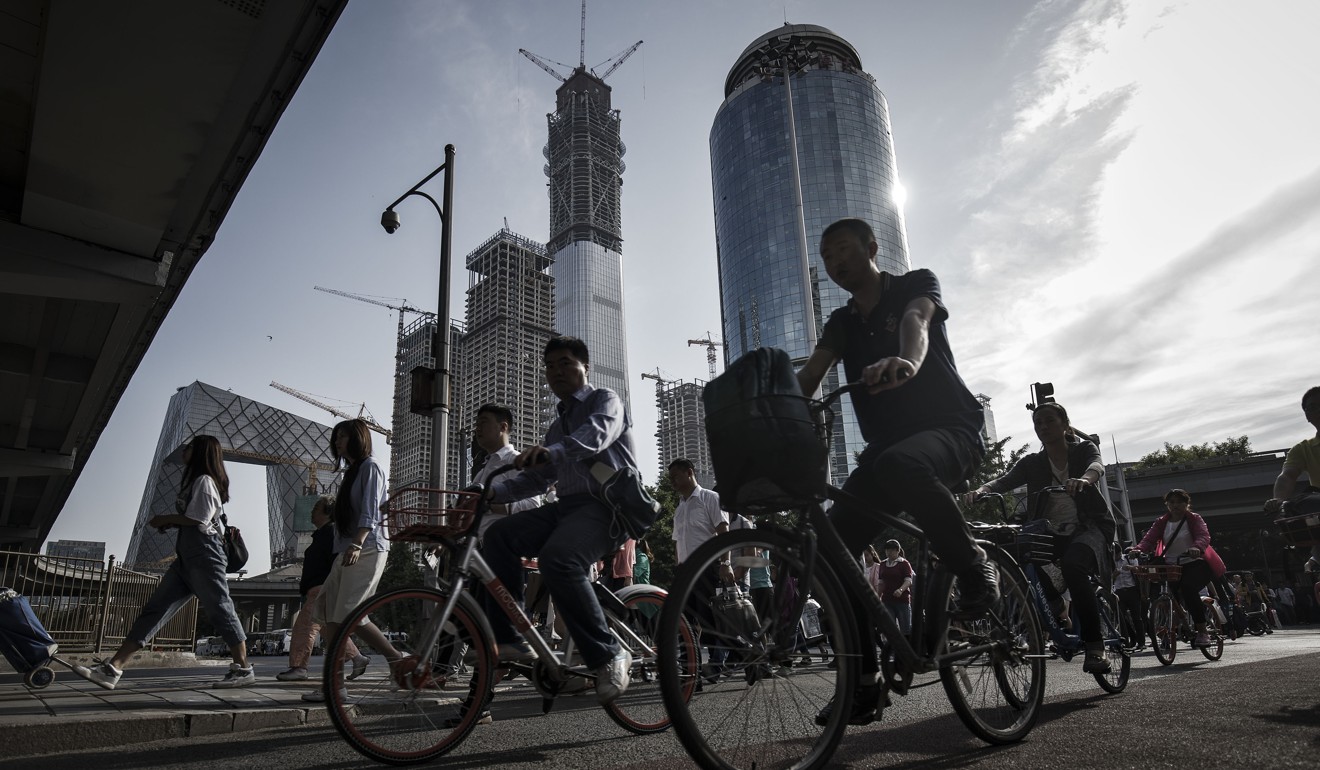
What does the popular language of the day say about the world’s economies?
Our writer previously chose to learn Spanish and Japanese, thinking matching economies would be safe bets against economic collapse. This time he is playing safe and sticking with Mandarin
When I was at school , I chose Spanish as my language option.
Spanish, I was told, was spoken by more countries in the world than any other, was soon to overtake English as the primary language in the United States, and reflected the broader excitement around Latin America’s then soaring economic growth.
After some five years of study – during which I mastered the phrase “¿Dónde está la gasolinera?”, allowing me at least to fill the car with petrol – Spanish and I parted company on not altogether friendly terms, after I completely blew my exams.
Coincidently, the Latin American economies also blew up around the same time following a debt and default binge, the effects of which, arguably, the region still suffers.

Chastened, I went to university and decided instead to learn Japanese. Japan in the 1980s, I was told, was on top of its game and was about to buy the world. It had just bought Australia and Southeast Asia, and was busy buying up large chunks of the US.
They had more money than anyone else, and everyone from bankers to retailers to hoteliers had to learn the language. So I bought a copy of Japanese for Busy People, and spent the next three years mastering the phrase “Wakarimasen,” before admitting I did not – and never would – understand Japanese.
Coincidentally, foreign investors came to much the same conclusion and fled the market in the late 1980s, leaving the Japanese economy so indebted that it would take several generations to resolve.
Nervously, I am now contemplating Mandarin, aware that from a language perspective, I am a walking sell signal.
Regular readers may have observed that I’m possibly more optimistic than many in China’s ability to transition to a slower growth trajectory driven largely by consumption; but my optimism assumes deleveraging commences sooner rather than later, albeit with a Japan-style rather than a Korea-style intensity
My Cantonese colleagues are learning it, my expatriate colleagues are learning it, even my 12-year old daughter in the wilds of an English country boarding school is learning it.
So what could possibly go wrong?
It’s true that China has pretty much bought Asia, all of Africa, large parts of the Middle East, Eastern Europe and Russia. And it is making sizeable inroads into western Europe and the US. But surely, this time it’s different?
At 260 per cent of gross domestic product (GDP), China’s gross level of indebtedness is substantial, but does this necessarily mean that its economy is an accident waiting to happen? Or that a financial crisis is imminent?
I’m not so sure. The world’s second-most indebted major economy, Japan, has been weighed down by a similar sized debt burden for decades, but it has managed over the past 20 years to eke out modest levels of growth while simultaneously avoiding major financial crises.
Near neighbour South Korea, conversely, experienced the mother of all financial crises during the Asia Crisis in 1997, despite having a gross debt to GDP ratio of “just” 150 per cent – still high but nothing close to the levels of China or Japan.
Rather than excess debt per se, South Korea’s trouble was that it fell victim to the oldest trap in the financial world – a liquidity mismatch or, more accurately, an excess of short-term liabilities vs. long-term assets.
In other words, South Korea’s challenge was more about cash flow than solvency.
Japan’s debt is closely held by compliant local investors who hold the view – apparently and understandably – that it is not in their collective interest to reprice their holdings at fire sale prices, despite the best efforts of Western hedge funds to the contrary.
At 260 per cent of gross domestic product, China’s gross level of indebtedness is substantial, but does this necessarily mean that its economy is an accident waiting to happen? Or that a financial crisis is imminent? I’m not so sure
China also benefits from debt that is closely held by compliant local investors, but is able to go one step further inasmuch as it effectively owns the banking sector and can redistribute or socialise liabilities as and when it wants.
Add to this a non-convertible currency, substantial foreign exchange reserves that could be utilised to meet short-term obligations, and the risk of a financial crisis is low indeed.
A low risk of disruption in financial markets gifts China with a reasonably long runway to address its profound economic challenges.
Regular readers may have observed that I’m possibly more optimistic than many in China’s ability to transition to a slower growth trajectory driven largely by consumption; but my optimism assumes deleveraging commences sooner rather than later, albeit with a Japan-style rather than a Korea-style intensity.

Over the next 12 months, I will want to see a reduced contribution to growth by investment and a greater contribution by consumption. If that means GDP growth should eventually slide to 5 per cent, so be it.
I don’t think China will blow up like Japan and Latin America – but if it does, then certainly there’s a strong case for me thinking more carefully about which language to tackle next.
Rather than an emerging market, perhaps an ex-growth developed market?
A country where debt is seen as a badge of honour rather than a dirty word. Where the state offers and protects public services, to a degree unheard of in slash-and-burn Anglo-Saxon economies. Where people have time for long lunches, short work days and an all-round appreciation of the work-life balance. A country to retire in rather than work.
Bonjour, je m’appelle John!
John Woods is the chief investment officer of Asia -Pacific at Credit Suisse

